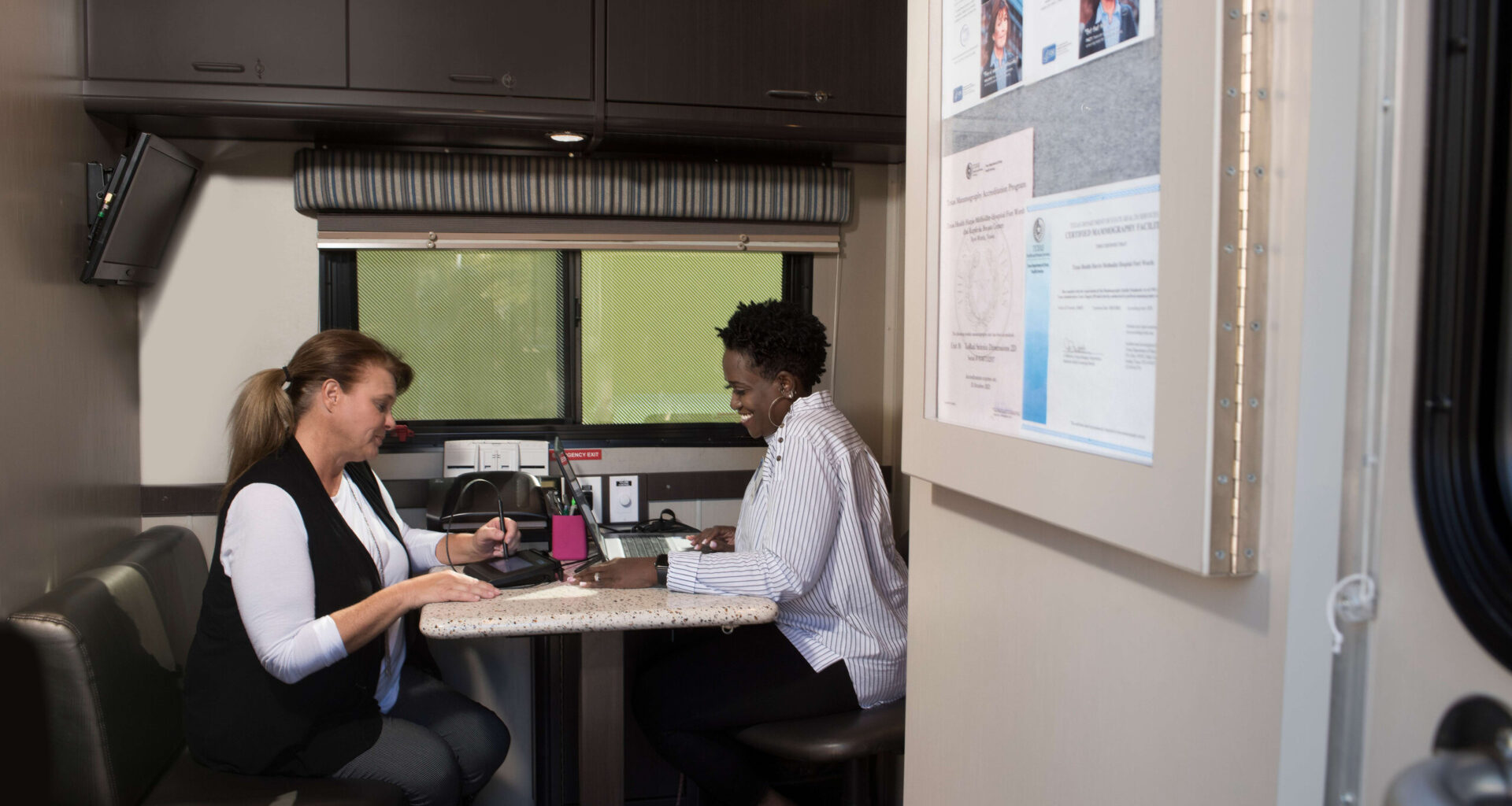Arlington native Ariana Saldierna initially wasn’t sure whether to go to a doctor for the pain in her right breast. She had felt a similar pain more than a decade earlier that turned out not to be anything serious, she recalled.
But after being nudged by a friend, Saldierna received a mammogram screening during a mobile health event in February. She was referred for additional screenings and, a week later, the 42-year-old was diagnosed with Stage 3 breast cancer.
“I had been seven months unemployed, and I didn’t have any money, so the mobile clinic was a big help for me,” Saldierna said. “I don’t see how I would have done it without them.”
The Texas Health Resources Wellness for Life Mobile Health Program that allowed Saldierna to get the medical screening is funded through the hospital network’s foundation. It provides no-cost services for those who are uninsured or underinsured.
The news hit hard, Saldierna said. Nevertheless, she’s grateful the mobile unit was in her neighborhood providing those necessary services.
Saldierna’s story is all too common as 1 in 8 women will receive a breast cancer diagnosis at some point in their lives, according to the National Breast Cancer Foundation.
The program now has services ranging from prostate cancer screenings to diabetes blood tests. However, it began in 1993 by providing mammograms.
Breast cancer is still a focal point of the program. Last year, 3,156 mammograms were performed in the mobile unit, according to Texas Health.
Mobile health director Nina Burgos said the program sees more requests in October to provide mammogram testing during Breast Cancer Awareness Month.
Program leaders are continuously seeking new communities to visit, Burgos said.
“Early detection isn’t just about finding cancer, it’s about preserving futures,” Burgos said. “Every early detection is a life given them more time, more birthdays, more memories, more moments with their loved ones.”
The program’s inception was rooted in a National Cancer Institute study, said Dr. Kathleen Crowley, the program’s medical director. Texas Health Harris Methodist Hospital Fort Worth was part of the landmark research, which started in 1992, and found that tamoxifen could be used to treat breast cancer.
As a result of the study, Texas Health invested in the mobile unit program to increase breast cancer screenings. The program has now grown to provide services throughout North Texas.
Crowley plans on stepping down from her position in December. She noted there is always room for growth, but she’s delighted the program has improved awareness of breast cancer in the community and expanded services beyond mammograms.
“It feels as though we have made some sort of impact in the lives of people around us,” Crowley said. “When you think about helping others, that’s a noble attribute. Why are we existing in the world, if not to help others?”
Saldierna adopted that mentality, too. She continues to receive her cancer treatment from Parkland Health, and has pushed friends and family members to get screened.
She hopes her advocacy will push others to get tested
“I know it’s a very scary thing to do — I was scared,” Saldierna said. “But I hope they get the courage to go out there and get checked and get it over with, rather than waiting and finding out later that you have cancer.”
Ismael M. Belkoura is the health reporter for the Fort Worth Report. Contact him at ismael.belkoura@fortworthreport.org.
At the Fort Worth Report, news decisions are made independently of our board members and financial supporters. Read more about our editorial independence policy here.
Related
Fort Worth Report is certified by the Journalism Trust Initiative for adhering to standards for ethical journalism.
Republish This Story
Republishing is free for noncommercial entities. Commercial entities are prohibited without a licensing agreement. Contact us for details.
